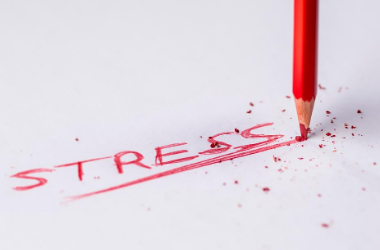We’ve all experienced unprecedented changes in our lives over the last few months, but it may be particularly challenging for adolescents and young people to navigate the abrupt interruptions in their daily lives. The stress and uncertainties surrounding COVID-19, combined with school closures and the cancellation of sports seasons, proms, and other once-in-a-lifetime events, has only exacerbated an already difficult situation.
According to a team of mental health experts led by a clinical psychologist from the University of Bath, “children and adolescents are more likely to experience high rates of depression and probably anxiety during and after enforced isolation ends.” When you may be struggling with similar feelings, it’s hard to know what is best to help the young person in your life, but UNICEF has some suggestions.
- Acknowledge that what they’re feeling is totally normal. Stress and anxiety is a natural reaction to unexpected change, and almost everyone they know has felt some level of it since the start of the pandemic. Tell them to lean into feelings of disappointment, of sadness and uncertainty. The only way out is through, and processing feelings looks different on all of us.
- Work with them to create a “new normal.” That said, don’t let them linger on the negative for too long. It’s important to remind them we’re all in this together. Everyone’s adapting on the fly, so there’s no “right way” to do something, but it’s important to maintain as much structure as possible. Keep wake time, bedtime, and mealtime consistent. Don’t let them binge on unhealthy junk food simply because it’s accessible (good advice for all of us!). Phones should stay off during virtual instruction, but encourage socially distant connection with family, friends, and teammates when it’s appropriate.
- Stay active! We know exercise reduces stress, depression, and anxiety, and can improve your mood and help you sleep—all of which are particularly important for young people. The Department of Health and Human Services recommends adolescents exercise for at least 60 minutes per day. Encourage a range of physical activity, from brisk walks to swimming to yoga. The variety will strengthen different parts of their developing bodies (heart, bones, muscles).
- Have frank conversations. Young people are social media savants, so they likely consume a ton of information throughout the day—and not all of it is necessarily correct. Regularly check in with them, and let them ask any questions. Take the time to correct misinformation, and provide them with relevant details to stay safe: emphasize the importance of masks and social distancing, why we should all be washing our hands often, etc. You are their best defense against untrue and frightening information, so make yourself available.
If you are struggling, or feel the young person in your life needs a little bit of extra help, Saratoga Hospital Medical Group patients can access behavioral health services through their primary care office. This collaborative care partnership with Concert Health provides patients with mental health assessments, coping skills, and other support services within 24 hours of a visit to their provider.
Do not wait to make an appointment with your provider if you’re feeling particularly lost or overwhelmed. Please call 1-844-863-9314 to speak to a specially trained volunteer with the New York State Mental Health Hotline.
Additionally, if you or someone you know is considering suicide, please call one of these numbers right away:
- Suicide Prevention Coalition of Saratoga County: 1-800-273-8255.
- National Suicide Prevention Hotline: 1-800-273-8225.
- New York State Mental Health Hotline: 1-844-
- Samaritans Suicide Prevention Center Hotline: 1-518-689-4673.
- Saratoga County Crisis Line Hotline: 1-518-584-9030.
Please visit our COVID-19 page for more information on coronavirus in our community. If you’d like to become a patient with Saratoga Hospital Medical Group, call our Patient Concierge at 518-886-5900.
Monday – Friday:
8:00 AM – 4:30 PM
Extended hours, by appointment:
Monday– Thursday:
7:30 Am – 8:00 AM and
4:30 PM – 7:00 PM
Lab hours:
Available during normal and extended business hours
518-886-5600
Fax: 518-886-5880
